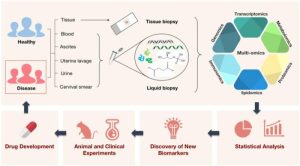
Dive into the complex world of mental health challenges in women where societal norms clash with individual struggles, hormonal changes play a pivotal role, and age brings its own set of obstacles. Get ready to unravel the layers of this critical topic!
Mental Health Challenges in Women
Women face a variety of mental health challenges that can have significant impacts on their well-being and quality of life. Societal expectations, hormonal changes, and age-related factors all play a role in shaping women’s mental health experiences.
Societal Expectations and Mental Health
Societal expectations often place undue pressure on women to fulfill multiple roles and responsibilities, such as being caregivers, homemakers, and successful professionals simultaneously. These expectations can lead to feelings of inadequacy, stress, and burnout, contributing to mental health issues like anxiety and depression.
Hormonal Changes and Mental Health
Hormonal changes, such as those experienced during puberty, pregnancy, and menopause, can have a significant impact on women’s mental health. Fluctuations in hormone levels can lead to mood swings, irritability, and increased susceptibility to conditions like depression and anxiety disorders.
Age-Related Factors and Mental Health Disorders
The prevalence of mental health disorders in women varies across different age groups. For example, young women may be more susceptible to conditions like eating disorders and self-harm, while older women are at a higher risk of developing mood disorders like depression. It is crucial to consider these age-related factors when addressing mental health challenges in women.
Healthcare for Women
Women’s mental health can be greatly impacted by various factors, including biological, social, and environmental influences. Gender-specific healthcare plays a crucial role in addressing these mental health challenges and providing tailored support for women. Healthcare providers have a significant responsibility in recognizing and treating mental health issues in women, offering a safe space for them to discuss their concerns, and providing appropriate interventions.
Importance of Gender-Specific Healthcare
Gender-specific healthcare for women is essential in addressing mental health challenges as it takes into account the unique biological, psychological, and social factors that affect women’s mental well-being. By providing specialized care that considers these specific needs, women can receive more effective treatment and support for their mental health issues.
Role of Healthcare Providers
- Healthcare providers play a crucial role in supporting women with mental health issues by offering a safe and non-judgmental environment for them to express their concerns.
- They can provide accurate diagnosis, personalized treatment plans, and access to mental health resources that are tailored to women’s needs.
- Healthcare providers can also offer emotional support, therapy, and medication management to help women manage their mental health challenges effectively.
Barriers to Accessing Mental Healthcare Services
- Social stigma surrounding mental health issues can prevent women from seeking help or discussing their concerns openly.
- Lack of awareness about available mental health services and resources can also be a barrier for women in accessing appropriate care.
- Financial constraints, lack of insurance coverage, and limited access to mental healthcare facilities can further hinder women from receiving timely treatment.
Benefits of Early Intervention and Timely Treatment
- Early intervention in women’s mental health can prevent the escalation of symptoms, improve treatment outcomes, and enhance overall well-being.
- Timely treatment can help women regain control over their lives, improve their quality of life, and reduce the impact of mental health challenges on their daily functioning.
- By addressing mental health issues early on, women can develop effective coping strategies, build resilience, and maintain long-term mental wellness.
Health Addictions and Women

When it comes to mental health challenges, addiction can often go hand in hand for women. The relationship between mental health and addiction in women can be complex and intertwined, requiring specialized care and support.
Tailoring Addiction Treatment for Women’s Mental Health Needs
- Women may have unique triggers for addiction related to their mental health issues, such as trauma, anxiety, or depression. Tailoring addiction treatment programs to address these underlying mental health needs is essential for successful recovery.
- Therapies like cognitive-behavioral therapy, trauma-informed care, and gender-specific counseling can be particularly effective in helping women overcome addiction while addressing their mental health challenges.
Support Systems for Women Dealing with Mental Health and Addiction
- Women-specific support groups and peer networks can provide a safe space for women to share their experiences, seek advice, and receive encouragement from others who understand their unique struggles.
- Community resources, such as women’s shelters, mental health clinics, and addiction treatment centers, can offer specialized programs and services tailored to the needs of women dealing with mental health and addiction issues.
Stigma Surrounding Addiction and Mental Health in Women
- There is often a significant stigma attached to addiction and mental health challenges in women, leading to feelings of shame, guilt, and isolation. Breaking down these stigmas through education, awareness, and open conversations is crucial in ensuring women feel supported and empowered to seek help.
- By addressing the stigma surrounding addiction and mental health in women, we can create a more compassionate and understanding society that prioritizes the well-being and recovery of all individuals, regardless of gender.
Alternative Treatments for Women’s Mental Health
Women facing mental health challenges can benefit from various alternative treatments that focus on holistic well-being. These treatments encompass practices like mindfulness, yoga, acupuncture, nutrition, and dietary changes, offering a comprehensive approach to mental health care.
Mindfulness
Mindfulness involves being fully present in the moment and cultivating awareness of thoughts and emotions without judgment. This practice can help women manage stress, anxiety, and depression by promoting relaxation and emotional regulation.
Yoga
- Yoga combines physical postures, breathwork, and meditation to enhance mental and emotional well-being.
- Regular practice of yoga can reduce symptoms of anxiety, improve mood, and increase overall resilience to stress.
Acupuncture
Acupuncture is a traditional Chinese medicine practice that involves inserting thin needles into specific points on the body to restore balance and promote healing. It can help alleviate symptoms of depression, anxiety, and insomnia in women.
Nutrition and Dietary Changes
- A balanced diet rich in essential nutrients can support brain health and mood regulation.
- Specific dietary changes, such as reducing sugar and processed foods, can positively impact mental health outcomes in women.
Effectiveness of Alternative Treatments vs. Traditional Therapy
While traditional therapy remains a valuable resource for women’s mental health care, alternative treatments offer complementary approaches that focus on the mind-body connection. The effectiveness of these treatments may vary depending on individual preferences and needs.
Holistic Approaches to Women’s Mental Health Care
Embracing holistic approaches to mental health care involves addressing physical, emotional, and spiritual aspects of well-being. By integrating alternative treatments, nutrition, and lifestyle changes, women can cultivate a more balanced and resilient mindset for better mental health outcomes.
Last Word

As we wrap up our discussion on mental health challenges in women, remember that understanding, empathy, and timely interventions can make a world of difference. Let’s continue to support and uplift each other in navigating these challenges together.
Key Questions Answered
How do societal expectations affect women’s mental health?
Societal expectations can create immense pressure on women to fulfill specific roles, leading to stress, anxiety, and other mental health issues.
What are some unique challenges women face in accessing mental healthcare services?
Women often encounter barriers such as financial constraints, lack of insurance coverage, stigma, and limited awareness of available services.
Can alternative treatments like mindfulness and yoga really help with women’s mental health?
Absolutely! Practices like mindfulness and yoga have shown positive effects on mental well-being by reducing stress and promoting relaxation.




:max_bytes(150000):strip_icc()/jefit-fitness-weight-loss-app-d22c2acaf9e34127b6face554591c325.jpg?w=700)

